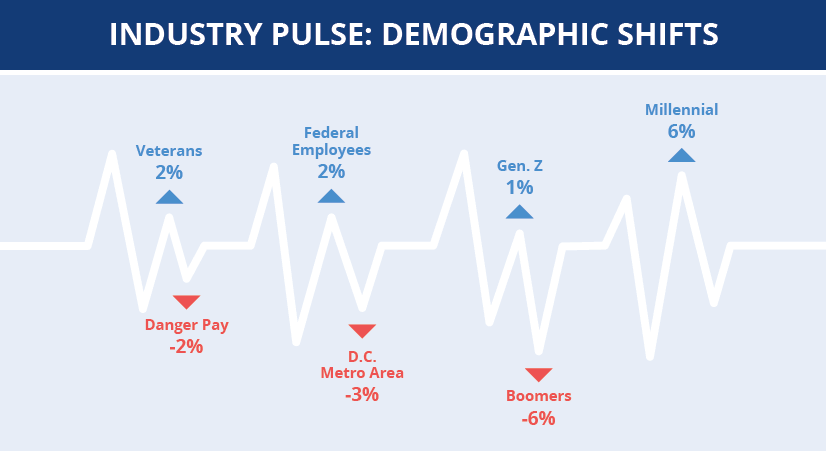The past year left many workers bracing for impact. Subtle shifts in workers and industries emerged as we pulled together the results of our 2022 Security Clearance Compensation Report. In a niche industry with a limited talent pool, those small shifts can have a big effect.
Download a copy of the 2022 Security Clearance Compensation Report
Surprisingly for a cleared marketplace that remains a candidate’s market, overall compensation for all cleared workers dipped slightly in 2021. That’s likely due to demographic shifts, not demand for talent. The pandemic caused a rapid rise in retirements across all industries, and boomer respondents dipped by 6% in our survey, replaced 1-1 by a 6% increase in the number of millennials. Job category continues to be the big factor in overall compensation, as well. Not all clearances are created (or valued) equally, and a candidate with a mix of technical skills, a Top Secret clearance, and the right years of experience can quickly garner pay that’s $30-50k higher than the average.
Key Highlights:
The Security Clearance Compensation Report breaks down compensation figures by:
- Clearance Level
- Polygraph
- Occupation
- Geographic Location
- Career Level
- Certification
- Education Level
- Role
- Government Agency
The report also incudes a special section on job and salary satisfaction. As the industry recovers from a pandemic year, both dipped, meaning the challenge of employee retention is harder than ever.
The Big Takeaway
The key to compensation in 2022 may be embracing that there is no such thing as the ‘average’ cleared candidate. The factors that motivate candidates to leave or stay are unique – and with 85% of respondents saying they were at least somewhat likely to change jobs in the coming year, and job and salary dissatisfaction both on the rise, retaining talent requires offering the right blend of mission, money, and opportunity.





